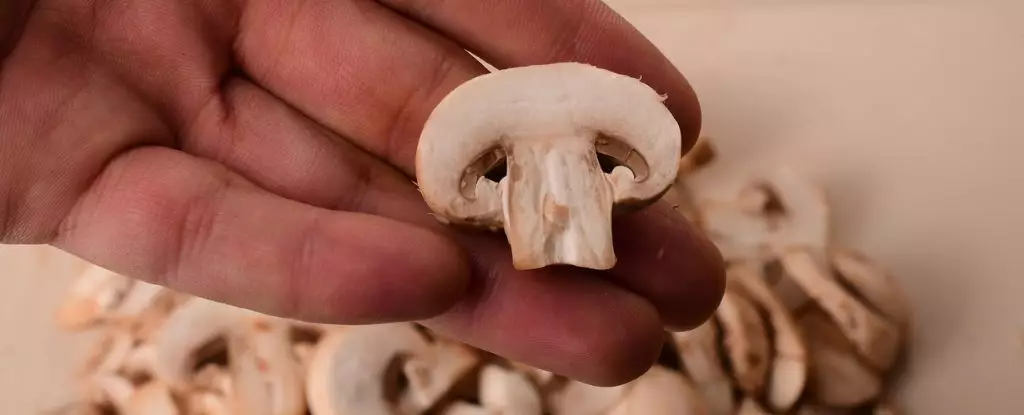Historically, the spotlight has often shone on exotic mushrooms, like Lion’s Mane and Reishi, known for their supposed medicinal properties. However, recent research has led us to reconsider the value of more commonly consumed species, particularly the white button mushroom (Agaricus bisporus). This unassuming fungus, widely cultivated and enjoyed in various cuisines, may harbor significant health benefits that have thus far eluded mainstream recognition. With emerging evidence hinting at its potential role in cancer prevention and treatment, it becomes increasingly essential to explore this mushroom’s capabilities beyond culinary applications.
At the forefront of this investigation is City of Hope, a prominent cancer research and treatment institution in the United States. Their latest studies suggest that white button mushroom extracts could play a pivotal role in combating prostate cancer, a disease that heavily impacts men worldwide. Although the U.S. Food and Drug Administration (FDA) has yet to endorse any food-derived product as an anticancer medication, the research team is diligently crafting a narrative that could pave the way for the acceptance of Agaricus bisporus as part of an integrative treatment regimen. According to cancer biologist Shiuan Chen, this growing body of evidence may facilitate a future where “food as medicine” becomes a standardized approach in oncology.
The path to validating these claims, however, is fraught with obstacles. While encouraging preliminary findings are noteworthy, the complexities of FDA regulations necessitate rigorous scientific scrutiny. As the researchers at City of Hope work to furnish a solid scientific foundation, their findings indicate that white button mushrooms might serve as an adjunct therapy, ideally augmenting traditional prostate cancer treatments and improving patient outcomes.
Prostate cancer exhibits a sophisticated defense mechanism that hinders the body’s immune response, primarily through the production of myeloid-derived suppressor cells (MDSCs). These immature white blood cells can effectively mute the immune system’s attempts to combat tumor growth. Preliminary studies suggest that white button mushrooms possess traits that might counteract these suppressive strategies.
In earlier phase I clinical trials, participants consuming mushroom extracts demonstrated reductions in MDSC levels, indicating the potential for these extracts to alter the dynamics of tumor immunology. Data collected indicated that some individuals had prostate-specific markers dropping to undetectable levels, suggesting an impressive impact on cancer progression. This finding underscores the need for continued research to unravel the complex interplay between dietary components and cancer biology.
Current investigations have progressed beyond anecdotal observations through controlled studies involving murine models. Results from these studies show that tumors in mice treated with white button mushroom extract exhibited delayed growth and improved survival rates. Furthermore, the extract appears to decrease the prevalence of tumor-derived suppressor cells in the bloodstream. Similar outcomes are emerging from ongoing phase II clinical trials involving human subjects, with evidence pointing to an increase in anti-tumor immune cells.
However, disentangling the specific compounds within the mushroom that elicit these effects is a considerable challenge. Fungi are complex organisms rich in diverse chemical constituents, including soluble fibers, proteins, lipids, and phytochemicals—each of which could play a role in modulating cancer pathways. As researchers delve deeper into these extracts, they face a daunting task of identifying which of these myriad compounds contribute most significantly to the observed therapeutic effects.
While the findings surrounding white button mushrooms are still nascent, there is considerable optimism about their potential role in oncological care. As stated by Xiaoqiang Wang, a key scientist involved in the research, the study’s early results are promising but require further investigation before drawing definitive conclusions. The hope is that, as research advances, white button mushrooms could offer a new avenue for those faced with prostate cancer, promoting a more holistic approach to treatment.
Ultimately, the integration of mushrooms like Agaricus bisporus into therapeutic regimens could herald a new chapter in cancer care, where the benefits of nutrition and traditional medicine converge. As we continue to unearth the hidden potential of everyday foods, we may find that the key to combating serious health challenges lies in our kitchens, waiting to be discovered.

